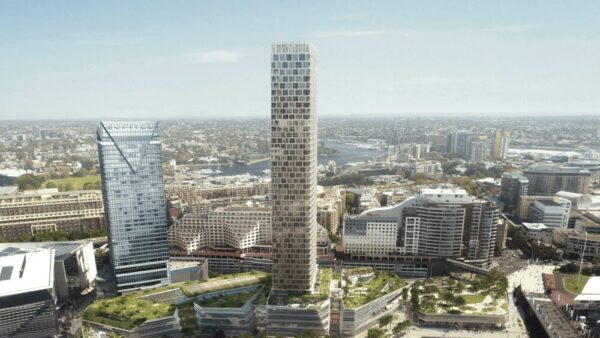The UK construction industry is fostering modern slavery and companies are ducking their legal responsibility to root it out, a leading professional institute warns today.
The industry’s very business model, featuring lowest cost tendering and long subcontracted supply chains, makes it a fertile breeding ground for human trafficking and related abuses.
Incidents of slavery are found on major infrastructure programmes, hospital projects, and local authority schemes, says the Chartered Institute of Building (CIOB).
Construction ranks second only to the sex industry as the sector most prone to exploitation in the EU, and the CIOB urges contractors to face up to the problem with a report released today.
“It’s time to get real about the challenges facing UK construction,” said Chris Blythe OBE, chief executive of the CIOB, an international accreditation body for construction management.
“Contrary to public perceptions, modern slavery is not confined to small illegal operators,” he added. “Criminals are attracted to big business because of the greater profits that they can earn. Unscrupulous labour providers, operating in the grey area of the law, are also creating misery for thousands of British and foreign workers.”
Modern slavery encompasses a range of illegal practices, including withholding passports, false imprisonment, non-payment of wages and breaching terms of contracts, backed by threats of violence or other punishments.
Entrepreneurial UK slavers exploit poverty, lack of English language, and fear of authorities to ensure compliance with abusive terms.
Construction ranks second only to the sex industry as the sector most prone to exploitation in the EU
Criticising the industry’s slow response to the Modern Slavery Act 2015, CIOB’s report highlights the aggressive construction business models that create the environment for unethical procurement and recruitment practices, and the systemic auditing failures that let criminals infiltrate major projects.
It says major contractors, hungry for skilled labour, have no idea what’s going on in their supply chains beyond the first one or two levels down their subcontracted supply chains.
Andrew Wallis OBE, head of anti-slavery charity Unseen, which operates the Modern Slavery Helpline, said there had been an “exponential growth” in calls to the helpline since its launch in October 2016.
He said construction is the third most prevalent type of forced labour exploitation cases reported, with economic abuse and isolation being the most common forms of control by the slavers.
“The fundamental challenge the construction sector faces is that its default business practices facilitate forced labour exploitation,” he said. “An extractive profit model, based on a repeating subcontracting framework, has created the conditions for illicit traders in human beings to flourish. When added to the fact that many companies are not proactively engaging with the spirit of the transparency in supply chain legislation, the perfect environment exists for people to be exploited.”
Construction companies are ducking their responsibilities, the report says. It highlights how companies:
- Conflate immigration checks with modern slavery checks, which misses abuses because many people trapped in modern slavery have a legitimate right to work in the UK;
- Let “severe weaknesses” persist in their commercial auditing models, with auditors disincentivised to report problems to the police;
- Neglect supply chain reporting standards, with many eligible companies failing to produce a modern slavery report in the first annual reporting cycle;
- Do not follow minimum legal requirements for their published statements, including having them signed off by a board director and visible on the company homepage;
- Water down their modern slavery statements to remove mention of risk, which is against the spirit of the Modern Slavery Act;
- Default to legal compliance exercises that push responsibility onto their less well-resourced suppliers, also against the spirit of the legislation.
“We need to change the conversation that we have with clients, our peers and the media,” said Chris Blythe in launching the report, entitled Construction and the Modern Slavery Act, tackling exploitation in the UK.
“Suppliers and labour agencies should be rewarded for finding and reporting problems, contractors need to promote fairer business models and clients need to be more explicit about their ethical expectations,” he added. “This goes to the heart of professional leadership. We need to empower everyone working in this industry to act, share and collaborate for the greater good.”
The report comes as the UK’s Gangmasters and Labour Abuse Authority (GLAA), and the National Crime Agency (NCA) lead a national enforcement campaign involving police forces and other agencies aimed at tackling labour exploitation.
“Slavery is not a thing of the past. It’s a very real crime that seeks out vulnerable people and exploits them for criminal profit. It affects all types of communities across every part of the United Kingdom,” said Roy McComb, NCA deputy director.
“Labour-intensive sectors like construction, where temporary and irregular work are common, are high-risk sectors for exploitation,” he added.
“Tackling modern slavery is a priority for UK law enforcement but everyone has a role to play in spotting and reporting this crime. We welcome this report and hope that it acts as a reminder to all employers within the construction industry that labour exploitation does exist and they are responsible for ensuring their supply chains are compliant with modern slavery legislation.”
Roger Bannister, interim chief executive of the GLAA, said: “There are huge profits to be made for those unscrupulous enough to exploit vulnerable workers and the building industry is extremely lucrative for them. We have carried out operations targeting those who traffic migrant workers into the UK and then force them to work on construction sites, often with false IDs.”
The report includes interviews with a number of leaders and influencers, including:
- Independent anti-slavery commissioner Kevin Hyland OBE;
- The late Paul Broadbent, former chief executive of the Gangmasters and Labour Abuse Authority (GLAA);
- Leading barrister Caroline Haughey QC;
- Chief constable for Devon and Cornwall Police, and national policing lead for modern slavery, Shaun Sawyer;
- Jeremy Capey, operational lead of the modern slavery police transformation unit;
- Justine Currell, executive director of Unseen and the Modern Slavery Helpline.
CIOB is launching a “Routemap to Fair Business” which sets out steps for raising standards for all workers and suppliers, encouraging a more proactive approach to tackling systemic issues.
- Download the report here.
Image: Tower cranes in London. Systemic auditing failures let criminals infiltrate even major projects, says the CIOB (Rafael Ben Ari/Dreamstime)
Comments
Comments are closed.







This is a very damaging report concerning the building/construction industry.
Interesting article and from an international perspective where are the construction unions in this debate. I have worked in the USA on both non-union projects and union backed “project labor agreement” projects and the latter, although under threat, have been proven to generate enhanced quality, safety and labor relations.